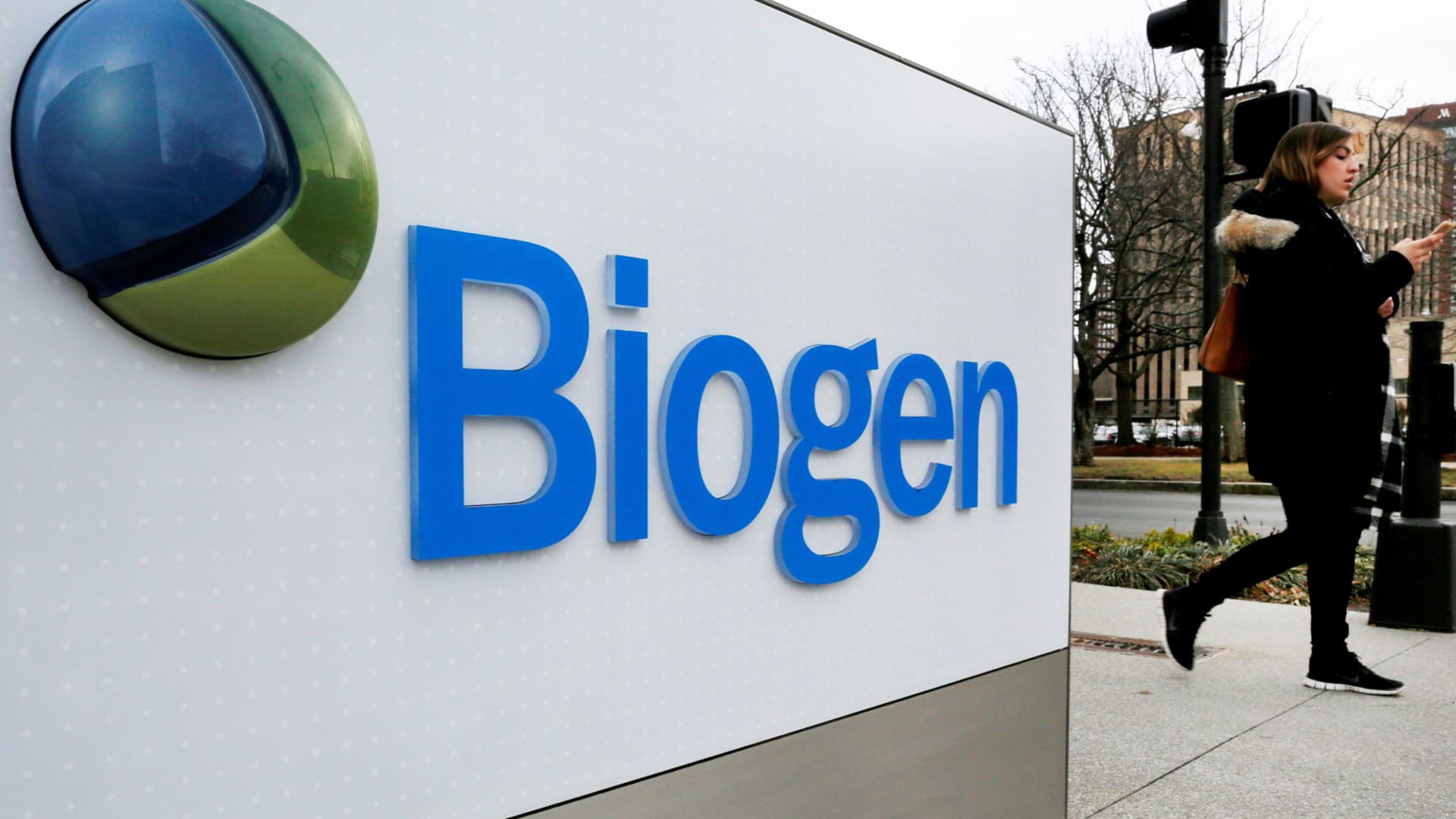U.S. Food and Drug Administration staff on Monday said Biogen’s investigational ALS drug may have a “clinical benefit” on a rare and aggressive form of the disease, despite failing a broader late-stage clinical trial last year.
The staff made the conclusion in briefing documents ahead of a meeting on Wednesday when a panel of external advisors will discuss whether to recommend accelerated approval of Biogen’s drug tofersen for the treatment of a rare genetic form of amyotrophic lateral sclerosis, or ALS. The FDA’s accelerated approval designation is meant to allow for faster approval of drugs for serious conditions that fill an unmet medical need.
The panel will examine mixed evidence from the trial related to tofersen’s effectiveness and safety, and vote on whether it demonstrates whether the drug will produce a clinical benefit in patients with the rare form of ALS. The FDA typically follows the advice of its advisory committees but is not required to do so.
“This is a situation where there is a negative clinical study that failed to show a statistically significant treatment effect in the prespecified primary analysis population,” the 68-page staff report says. It notes, however, that the study was limited in its ability to determine whether the drug had any effect on the overall population because of the way it was designed. At the same time, the data indicates that targeted use of the drug was shown to reduce “a biomarker that has been shown to be correlated with disease progression and prognosis in patients with ALS.”
A separate exploratory analysis of the drug suggests “a clinical benefit with a longer duration of treatment,” the staff wrote.
If approved, Biogen’s drug could become the first to target a genetic cause of ALS, commonly known as Lou Gehrig’s disease, which generally affects people between 40 and 70 years old. It’s a progressive and fatal neuromuscular disease that causes the nerve cells in the spinal cord and brain to break down over time. It can cause muscles to twitch and cramp, it significantly interferes with motor skills and leads to troubles swallowing, breathing and eventually causes paralysis and death.
The FDA accepted Biogen’s application for full approval of tofersen in July. Last October, the agency extended its review of the application by three months. It is slated to make a final decision on April 25.
The FDA’s review of tofersen comes as Biogen tries to regain its footing after the polarizing approval and disastrous rollout of its Alzheimer’s disease therapy last year. The push to approve tofersen could come with its own hurdles: The drug failed to slow the progression of ALS in a phase three trial, according to results announced in October.
But Biogen noted that the investigational drug had an effect on a mutated version of a protein called SOD1. The protein can accumulate to toxic levels in people with mutations in a specific gene, which can damage the nervous system and lead to the development of ALS.
There are just a few thousand people in the world who have been diagnosed with this type of mutation — roughly 2% of the 168,000 people who have ALS worldwide, according to Biogen. In the U.S., 330 people are affected by the SOD1 mutation. But the drug’s approval could herald a new area of promising research in targeting the cause of ALS, which afflicts an estimated 5,000 new people in the U.S. ever year. Researchers from the National Institutes of Health estimate that ALS cases worldwide will increase by nearly 70% to around 376,000.
The trial found that patients who received tofersen saw their SOD1 protein levels decline between 26% and 38% compared with those given a placebo. It also found that tofersen reduced levels of a protein called neurofilament light (NfL,) which is “correlated with disease severity, disease progression rate, and survival in patients with ALS,” according to the FDA staff.
The staff highlighted these “convincing reductions” found in tofersen’s efficacy data, saying “such a reduction in neuronal damage, as evidenced by reduction in NfL, could be expected to lead to slower clinical functional decline.”
The FDA said it seeks input from the advisory panel on the strength of the efficacy data, and outlined two potential scenarios for the panel to consider. The first is to move forward with recommending accelerated approval based on tofersen’s reduction of NfL in ALS patients. The second scenario is recommending full approval of the drug based on the available data and results from an ongoing extension study on tofersen.
The ALS Association earlier this month said it submitted comments to the FDA advisory panel, urging it to recommend full approval of tofersen. The organization noted the drug meets all the requirements for accelerated approval, an FDA designation that allows the agency to approve drugs as rapidly as possible.
“SOD1-linked ALS is a particularly rare and aggressive form of an already rare and devastating disease,” said Dr. Neil Thakur, The ALS Association’s chief mission officer. “Knowing the urgent need for new ALS treatments and based on the data available at this stage, we believe tofersen meets all the conditions required for accelerated approval: treating a serious condition, providing a meaningful advantage over existing therapies and demonstrating an effect on a surrogate marker that is reasonably likely to predict clinical benefit.”
